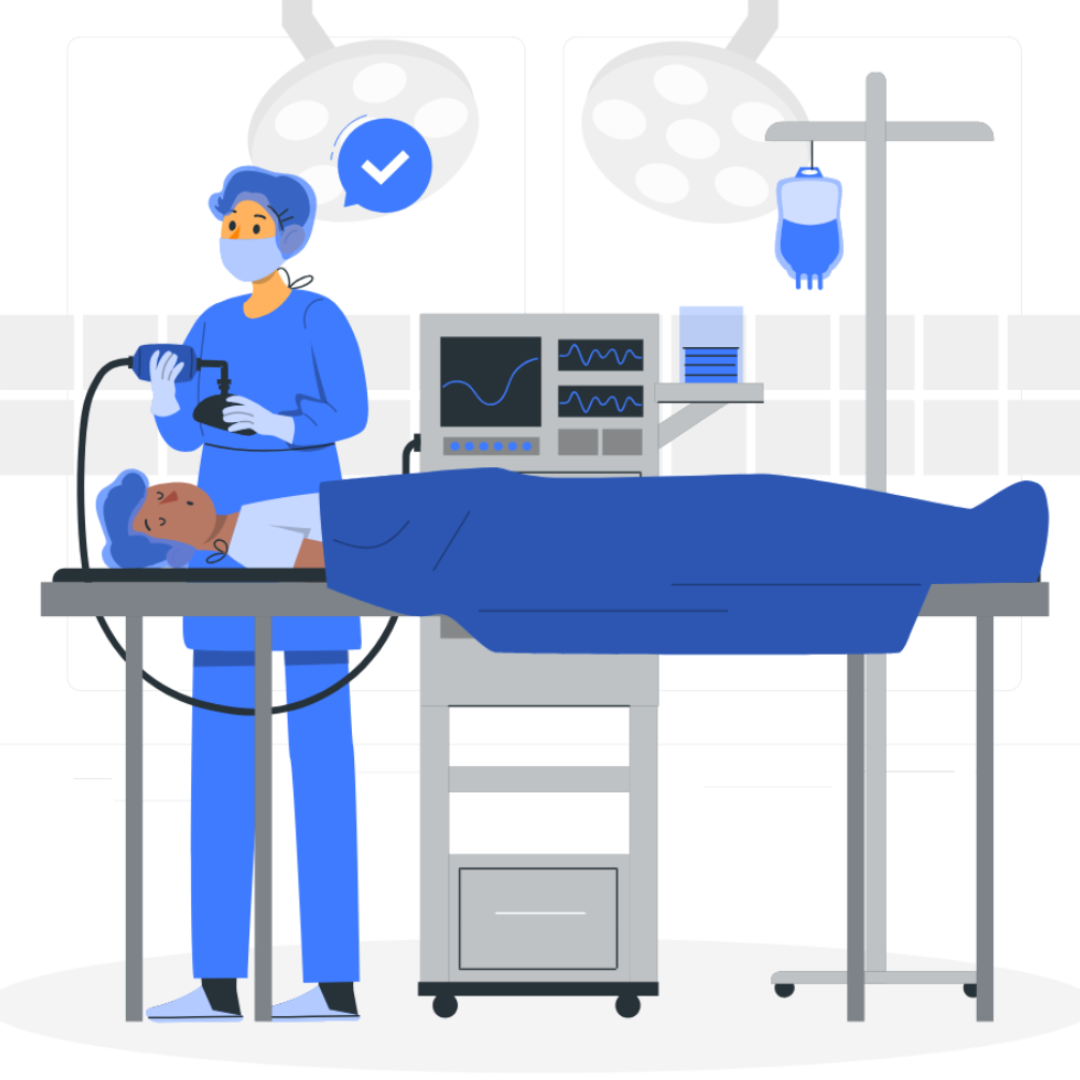Patient Information Blogs

Epidural Analgesia For Labour
...
30/04/2024
An epidural is an injection given in your back to stop you from feeling pain in a specified part of your body. Epidural analgesia is a type of epidural commonly given for pain relief in childbirth and in some types of surgery. Epidurals can be used during Childbirth and Caesarean sections. At Medicsi we manage to give the epidurals for labour round the clock by a highly competent and professional team of anaesthesiologists.
Preparing for an Epidural:
Around 34 to 36 weeks of gestation, your obstetrician will arrange an appointment with the anaesthesiologist for epidural counselling. If you have any concerns or questions about having an epidural, discuss these with the anaesthesia doctor on the appointment.
Epidural Analgesia For Labour
...
30/04/2024
An epidural is an injection given in your back to stop you from feeling pain in a specified part of your body. Epidural analgesia is a type of epidural commonly given for pain relief in childbirth and in some types of surgery. Epidurals can be used during Childbirth and Caesarean sections. At Medicsi we manage to give the epidurals for labour round the clock by a highly competent and professional team of anaesthesiologists.
Preparing for an Epidural:
Around 34 to 36 weeks of gestation, your obstetrician will arrange an appointment with the anaesthesiologist for epidural counselling. If you have any concerns or questions about having an epidural, discuss these with the anaesthesia doctor on the appointment.

You should visit the anaesthesiologist with your husband and in case he is not available, next of kin should accompany you on his behalf.
Do let the doctor know about any medicines you might be taking.
You may be given specific advice about eating, drinking, and medicines before the epidural.
If you decide to take an epidural during your labour, let your Obstetrician know about this.
When you get admitted to the hospital in labour, kindly inform the duty doctor about your willingness to take an epidural.
Epidurals in labour are given once you have regular painful contractions and your cervix is 3 to 4 cm. Once you reach this point you will be given an infusion of about 500 ml of fluids in preparation for the epidural. The on-call anaesthesiologist will come and give you the epidural. No relative is allowed to stay in the room at the time of epidural insertion.
The epidural takes about 30 min to site and it takes another 30 min to see if the effect is an optimum one.
The ease of the procedure depends on the contour of your backbone, the thickness of the skin at the lower back, and how co-operative you are at the time.
How is an Epidural given?
Epidurals are given by a specialist doctor called an anaesthetist.
You will be awake during an epidural.
A drip will be placed in your arm so you can be given fluids while you’re having the epidural.
You’ll be asked to sit down and lean forwards, or lie on your side with your knees up close to your chest.
You’ll be given an injection of local anaesthesia at the site of the epidural injection. The local anaesthesia medication will numb the skin where the epidural will be inserted.
A needle is used to insert a fine plastic tube called an epidural catheter into your back (spine) near the nerves that carry pain messages to your brain.
The needle is then removed, leaving just the catheter in your spine.
You may feel mild discomfort when the epidural needle is positioned and the catheter is inserted.
The epidural can be inserted at different levels of your spine, depending on the area of your body that needs pain relief.
Pain relief medicines are then given through the catheter. These take about 20 to 30 minutes to take full effect.
Your tummy and legs may feel numb while the epidural medicines are being used, and your legs may not feel as strong as usual. While the catheter remains in your back, it can be used to top up your pain relief medicines manually or using an automatic pump. This can be for several hours during childbirth.
Under some circumstances the epidural cannot be offered i.e; you reach the hospital and your cervix is more than 4 cm dilated, the platelets are less than 80,000 on the fresh CBC sample of the same day, or if the unit is busy and the doctor is not free to administer the epidural.
Recovering from an Epidural:
When the epidural is stopped, the numbness usually lasts for a few hours before its effects begin to wear off. While the medicine wears off, you’ll probably be advised to rest in a lying or sitting position until the feeling in your legs returns. This can take a couple of hours, and you may feel a slight tingling sensation in your skin.
Tell the doctor or nurse if you feel any pain. They can give you medicines to help control it. You should pass urine within 3 hours of stopping the epidural. If you feel difficulty in passing urine, kindly inform the duty doctor.
Sometimes you need to be catheterized for a few hours before the bladder tone returns completely and the bladder starts working effectively. Do not drive for 24 hours after having an epidural.
Risks and side effects of an Epidural:
Epidurals are usually safe, but there’s a small risk of side effects and complications, including:
Low blood pressure, which can make you feel lightheaded or nauseous
Temporary loss of bladder control
Itchy skin
Feeling sick
Headaches
Nerve damage
Our team will be in touch with you in case you end up with any such complications. Very rarely we might need to readmit you to medicate you for your post epidural headaches. This happens very infrequently. The chances that you can have a spinal fluid leak while siting in the epidural is close to 1.5 percent.





